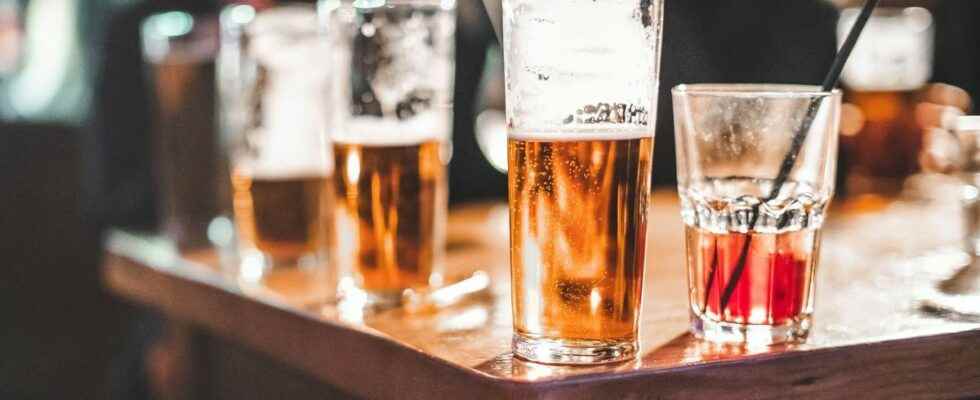Published on
Updated
Reading 3 mins.
As researchers tried to understand why alcohol consumption was so high among young people in the United States, they discovered that there was a genetic pattern to alcohol abuse. Explanations.
According to the results of a investigation National Report on Drug Use and Health in 2019, nearly 15 million people ages 12 and older have an alcohol use disorder. Among this figure, approximately 414,000 young people aged 12 to 17 suffer from this addiction.
“The earlier a use is, the more it will lead to consequences of both risk of dependence and equally dangerous physical impact. But how to delay the age of first use and first abuse?”this is the question raised by Dr. William Lowenstein, internist and President of SOS Addictions.
Why do people drink alcohol?
For their research, scientists recruited nearly 10,000 first-year students enrolled in American public universities. The objective was to examine the relationships between the reasons for alcohol consumption and habits. To carry out this study, the volunteers had to answer a questionnaire, each year after their registration at the university. These questions mainly focused on environmental factors such as the behavior of parents, peers and exposure to trauma such as natural disasters or aggression. In addition, saliva samples were taken from the participants to analyze their DNA.
The results revealed that the students’ alcohol consumption was stable during their four years of college. However, some reasons were related to alcohol consumption:
- Parents who gave a lot of autonomy to their child was associated with low alcohol consumption in the student;
- Conversely, high parental involvement was associated with high levels of social motivations and that according to the study researchers, the students concerned were more likely to drink for fun or to feel good. “to deal with it”;
- Peer integration was also linked to high levels.
“The motives for drinking are thought to contribute significantly to both the amount of alcohol a person drinks and the alcohol-related problems they might experience”, said Andrew Littlefield , PhD, an associate professor of psychology at Texas Tech University, but who was not involved in this study. He also added that “drinking to improve positive moods may have a stronger impact on alcohol consumption compared to motives such as drinking to join a peer group”.
Alcohol abuse: a genetic pattern?
Based on the saliva samples, the researchers tried to identify genetic variants underlying drinking patterns and drinking habits.
“From the moment alcohol is metabolized, there are enzymes that come into play, there is genetics. So there may be a genetic part in alcohol-related problems. Genetics is a Be careful, this does not mean that alcohol is a purely genetic disorder” explained Prof. Gérard Dubois, President of the Alliance Prévention Alcool, professor of public health and member of the Academy of Medicine.
“Addictions are linked to multiple factors. If there was only one addiction gene that would be responsible, it would be simpler. We know that addiction has a multifactorial origin with undoubtedly a genetic vulnerability. And among these genetic vulnerabilities, we never speak of a single gene but rather of a polygenic set, that is to say several genes”says Dr. William Lowenstein.
However, given the small number of DNA samples analyzed, the researchers announced that even if their results are “promising”they are “largely inconclusive”. Previous studies had suggested that genetics was responsible for 50% of alcohol use disorders.
Believing that their study offers a “modest insight into the biology underlying patterns of alcohol use and their potential genetic pathways to abuse”the researchers recommend conducting studies with a larger number of DNA samples.
